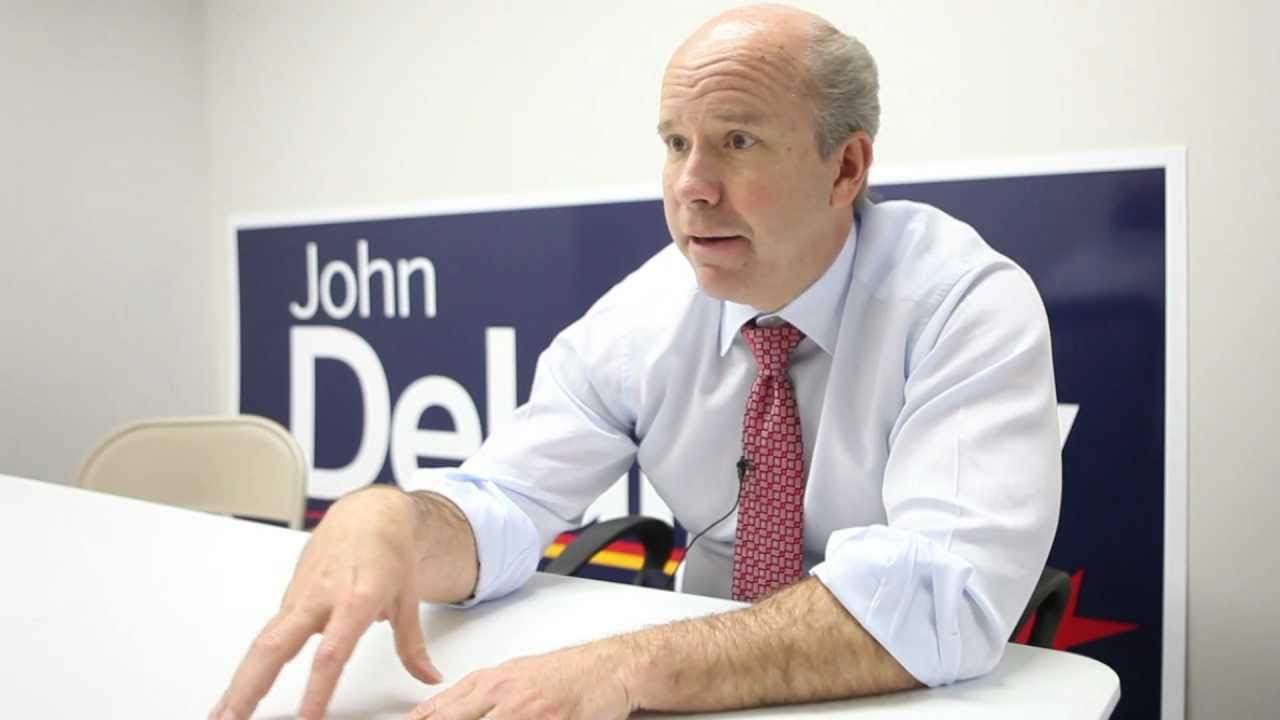John Delaney is a two-term U.S. representative who founded two publicly traded companies focused on financial services. He may well be the only candidate able to point to significant private sector experience. While he not always the most charismatic, he’s very, very smart and is well-versed in economic policy in a way that is rare for an elected official.
Money, Money, Money
John Delaney is worth a cool nine figures and over the last few years has spent around $5 million dollars of his own funds on his U.S. House bids. Always nice to be able to drop more than most will see in a lifetime like it’s buying a nice meal out.
In contrast, Chris Van Hollen and all other candidates will need to spend months locked in windowless rooms begging lobbyists and national donors for $2,600 checks in hopes of funding broadcast media buys in the extremely expensive DC and Baltimore Markets.
For the record, DC Broadcast at saturation costs $450,000 per week. Delaney can put $10 million, $15 million, perhaps even $20 million dollars in his campaign account in five minutes, freeing up his time for extensive retail politicking in far flung corners of the state.
Moreover, his money will buy a vast army of top tier hired guns and mercenary political consultants. As his campaign against Sen. Rob Garagiola showed in 2012, John Delaney knows how to hire good people and run an effective campaign.
John Delaney will bombard a microtargeted universe of likely Democratic Primary voters with glossy mailers and online advertisements. His (paid) canvassers will be at their doors daily. And, months before anyone else can afford to do so, his TV ads will flood living rooms from Silver Spring to Severna Park.
And frankly, that stuff works.
But Money Can’t Buy You Love
Chris Van Hollen will likely retain the loyalties of the northwestern Montgomery County residents he represented prior to redistricting (and are now) in the Sixth District–a real problem for Delaney as he needs those voters.
Moreover, John Delaney doesn’t have CVH’s massive base of volunteers and true believers. Donna Edwards also has the potential to attract a lot of ground support. These canvassers tend to be more effective than those in it for the (small) paycheck because they actually believe in the candidate.
Delaney’s opponents may argue that he made a fortune as a predatory lender. Moreover, ss dozens of other self funders have taught us, all the money in the world can’t buy enough advertising to make voters change their minds if they decide they don’t like you or just prefer someone else even if you’re a good candidate.
Labor
Labor Unions across the board united to oppose John Delaney’s first congressional bid. He’s since returned the animosity through numerous votes on infrastructure issues, which has angered the more traditionalist factions like the building trades and the AFL-CIO. He has also cast pro-Wall Street votes on the Financial Services committee, which has angered the more movement progressive type unions like SEIU. It can be expected that they will put whatever clout they have into denying him a promotion to the Senate.
Overlap and Niche
As a white Montgomery County congressmen, Delaney and CVH share the most base overlap.
Delaney will also be the most centrist candidate. He has repeatedly touted his moderate proposals and ability to work with Republicans–an approach that looks better in general than primary elections. To the extent a centrist bloc exists in a statewide Maryland Democratic Primary, he largely has that lane to himself. This may give Delaney room for expansion in the Baltimore suburbs, the Eastern Shore, and Southern Maryland.
Delaney also shares several political advisors such as pollster Fred Yang, media firm SKDKnickerbocker and Chief of Staff Justin Schall who work with other potential candidates. They will have to pick a side when their clients challenge each other for higher office.

